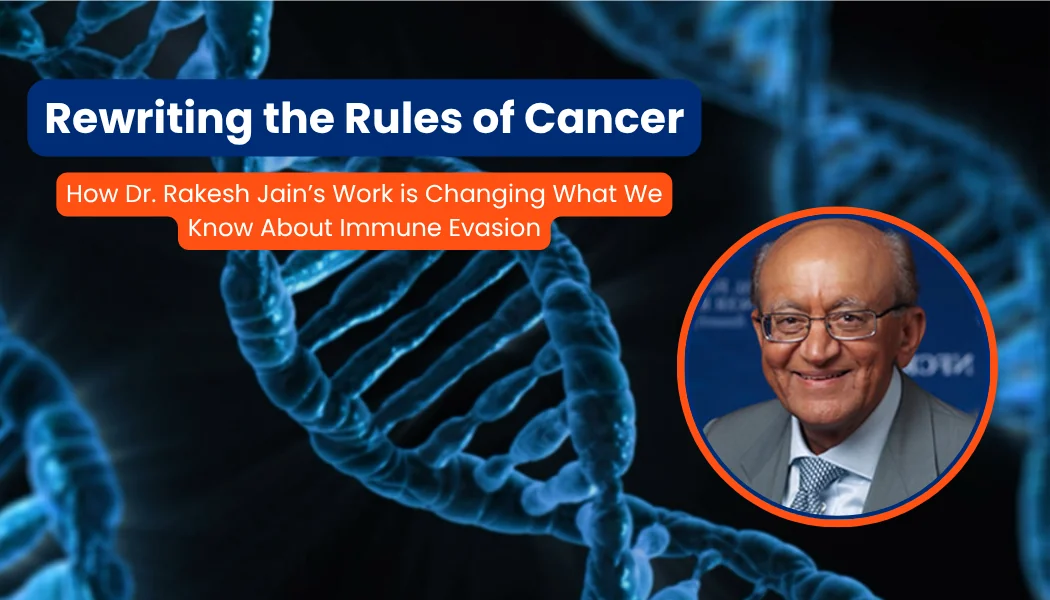Rewriting the Rules of Cancer: How Dr. Rakesh Jain’s Work is Changing What We Know About Immune Evasion

Pancreatic cancer remains one of the most aggressive and treatment-resistant cancers. Its ability to suppress the immune system makes it a particularly difficult target for even the most promising therapies, like immune checkpoint inhibitors. But thanks to new research published in Immunity, the cancer research community is beginning to understand why.
At the heart of this breakthrough is a familiar name: p53, often referred to as the “guardian of the genome.” In many cancers, p53 is mutated and loses its tumor-suppressing power. But what if it doesn’t just stop working—what if it starts working for the tumor?
This new study, co-authored by Dr. Rakesh Jain, a long-term scientist supported by the National Foundation for Cancer Research (NFCR), shows that a common p53 mutation (R172H in mice, R175H in humans) does exactly that. The mutant protein rewires the cancer cell’s genetic control panels—called enhancers—to crank up the production of a chemokine called Cxcl1. This, in turn, recruits immune-suppressing cells that block cancer-fighting T cells from reaching the tumor. The result? A “cold” tumor microenvironment that resists immunotherapy.
Crucially, the study reveals that blocking this pathway—either by deleting the mutant p53, inhibiting the enhancer regions, or disrupting its partnership with the inflammatory regulator NF-κB—reawakens the immune system. Mice in these studies experienced slower tumor growth, better responses to check point inhibitor treatments, and, in some cases, complete and lasting remission.
Dr. Jain’s contribution builds on decades of his groundbreaking work decoding the tumor microenvironment. His insights have consistently pushed the field toward smarter, more effective therapies. By illuminating how specific genetic mutations reshape the immune landscape, his work is helping scientists not only understand why treatments fail—but more importantly, how to make them succeed.
At NFCR, we are proud to provide long-term support to researchers like Dr. Jain who are driving transformative breakthroughs. Read the full study to learn more.
Your Support Makes Breakthroughs Possible
The transformative research by NFCR-supported scientists is made possible by the generosity of our donors. Your contributions help fund pioneering cancer research and accelerate the discovery of innovative therapies that offer hope to patients worldwide.
Sign-up to Stay Informed About Cancer Research Breakthroughs with NFCR!
A world without cancer is possible. Help us turn lab breakthroughs into life-saving realities.

5.7 Million+
Donors who have fueled NFCR’s mission

$420 Million+
Invested in high-impact research & programs

36+ Labs & Hundreds of
Nobel Laureates & Key Scientists received NFCR funding, driving breakthrough research












